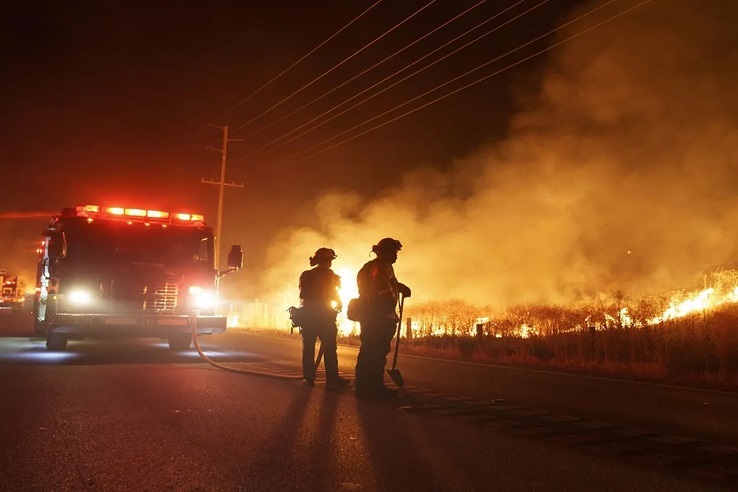Latest News
- Rainfall warnings in British Columbia's Fraser Valley; flood-hit area under pressure again from heavy rainfall
- Pressure mounts on Montreal emergency shelters as winter cold sets in
- Gun attack at Jewish festival on Sydney's Bondi Beach; at least 11 dead, dozens injured
- Four years after Indigenous woman dies in Niagara Hospital, family still waiting for coroner's investigation
- Lawyer: British Columbia RCMP officer should be fired or resign immediately
Latest Ads
-
Jasmine Jewel
Call
-
Omidan group
Call
-
Amir Madanpour
Call
-
Dimo studio
Call
-
Yorkacademy
Call
-
Maryambagheri
Call
-
Shishlix Restaurant
Call

Firefighters in many parts of Canada are struggling to get sick pay
Thomas Leblanc dedicated 35 years of his life to fighting forest fires in Montana, Alberta, British Columbia, and his home province of Ontario. However, when he was diagnosed with a cancer related to firefighting, he repeatedly refrained from seeking workplace compensation. In 2009, Leblanc discovered a lump on his neck and was diagnosed with non-Hodgkin lymphoma, one of the 12 cancers considered a potential job-related disease for structural firefighters in most of Canada. This means the disease is automatically assumed to have been caused by occupational exposure, making it easier to access benefits and workplace support. Leblanc applied for compensation from the Workplace Safety and Insurance Board (WSIB) in Ontario but was denied.
In all Canadian jurisdictions except four, wildland firefighters are exempt from the presumptive provisions granted to structural firefighters who respond to fires within buildings, fire alarms, hazardous materials spills, and response incidents. Leblanc and his family decided to fight for what they believed was their rightful compensation.
Thomas Leblanc passed away at the age of 54 in August 2010, almost a year after his initial diagnosis. He asked his wife to continue the fight against the WSIB claim. She said, "He said no one, no one should be forced to go through this." Leblanc didn't know that it would take nearly a decade-long battle for WSIB to determine that his late husband's cancer was likely caused by decades of exposure to wildfires.
Wildland firefighters work in intense smoke conditions and have limited protections in Canada. Firefighters in Ottawa received recognition following an unprecedented wildfire season after hiring a lawyer, conducting a series of lengthy arguments, reviews, and forming panels of experts. Leblanc eventually succeeded in getting WSIB to acknowledge. In June 2018, she received a notice from WSIB that now concedes that her late husband's exposure to smoke was "likely a significant contributing factor to his cancer." Leblanc remembers her husband coming home from work dirty and engulfed in smoke.
She said, "That smoke was coming out of his pores. WSIB documents for her husband, which fill three thick binders, show how he was frequently exposed to burning processed railway ties, which emit harmful chemicals, such as creosote. She said, "They worked with creosote. They worked with all kinds of chemicals that they would throw out of airplanes to be ignited separately."
Suggested Content
Latest Blog
Login first to rate.
Express your opinion
Login first to submit a comment.
No comments yet.


































